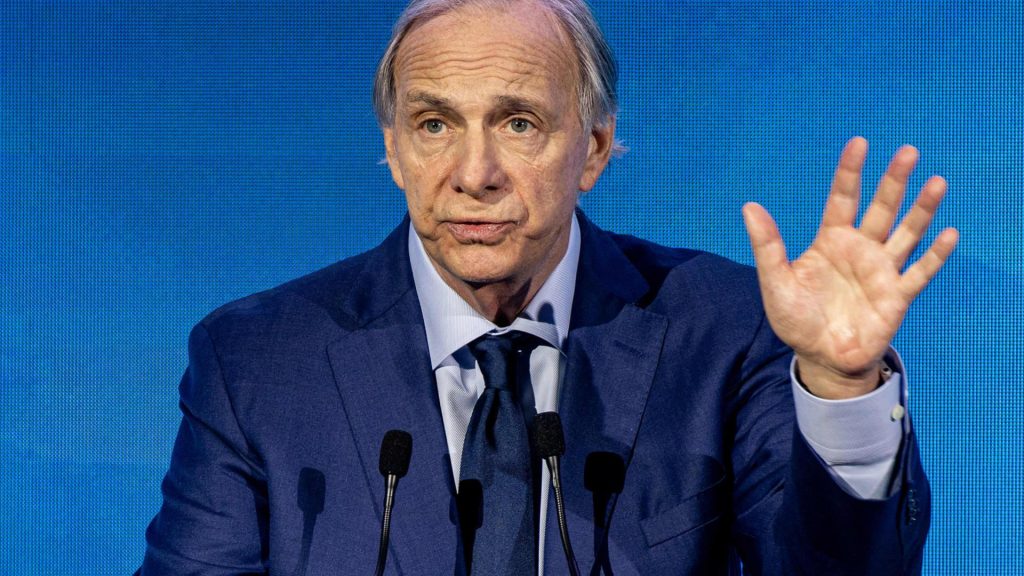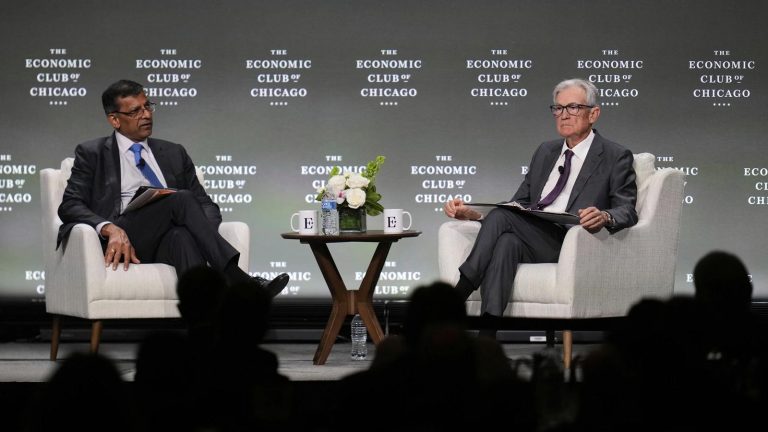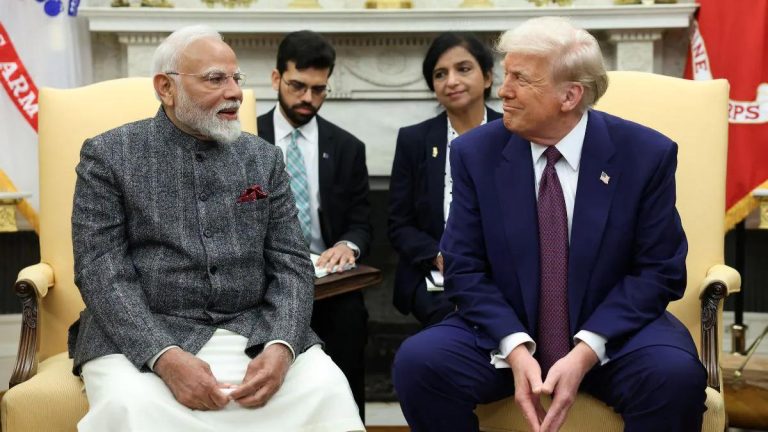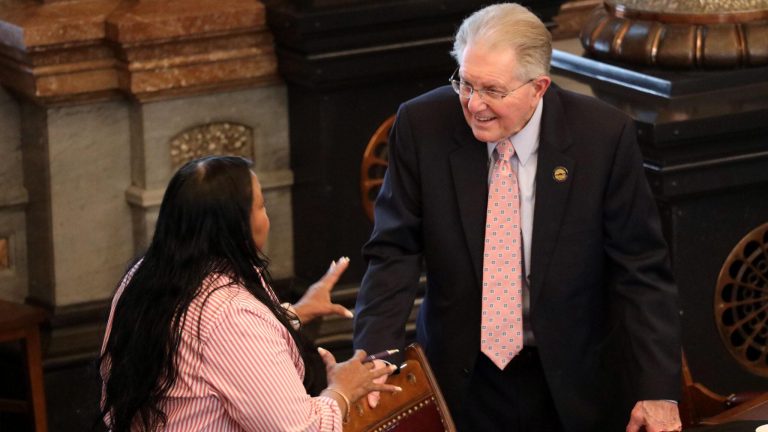
Ray Dalio Warns of Economic Collapse Beyond Recession | Image Source: www.cnbc.com
WASHINGTON, D.C., April 13, 2025 – Ray Dalio, the billionaire founder of Bridgewater Associates and a strong voice in the global macroeconomics, has issued a serious warning on the trajectory of the US economy. Speaking of the NBC’s “Meet the Press” and echoing previous comments on X (previously Twitter) and at the March CNBC CONVERGE LIVE event, Dalio expressed deep concern that the United States could be agitated not only on the brink of a recession, but on the precipice of a potentially much more destabilizing situation. His comments come in the midst of increased trade tensions with China, forgiveness of the federal debt and what he considers a dangerous change in the international order.
According to Dalio, five central forces form the arc of history: the economy, the internal political conflict, the international order, technological progress and acts of nature. Right now, the five are sinking. But it is the interaction between geopolitical and fiscal instability that is most affected by Dalio. As you can see, if the current mix of erratic trade policies, a growing debt burden and geopolitical debt is not managed with a strategic vision, the global economy could be hit harder than the 2008 financial crisis – and perhaps even more chaotic than the collapse of the Bretton Woods system in the early 1970s.
What exactly is Dalio worried about?
Dalio’s apprehension is not rooted in speculation – it is derived from models he has observed several times throughout history. According to him, the sudden changes in US trade policy, particularly the aggressive tariff measures of the Trump administration, posed a significant threat to global economic stability. As for Meet the Press, he said that while the objective of tariffs, namely to rethink the manufacturing and protection of the domestic industry, is not inherently wrong, implementation has been disruptive and chaotic.
“It’s like throwing stones into the production system,” said Dalio, stressing that the unpredictability of such policies can break supply chains and erode international confidence. Recent decisions to partially apply and withdraw tariffs – such as the 145 % of Chinese import obligations and subsequent exemptions for consumer electronics – have created confusion in markets and have discouraged long-term business, investor and government planning.
“We’re at a decision point,” Dalio said. “And I worry about something worse than a recession if it’s not well managed”
Is a recession likely in 2025?
Many experts agree with Dalio’s dark perspective. Goldman Sachs recently put the likelihood of a US recession next year at 45%, compared to previous estimates. Managing Director David Solomon noted that trade tensions, particularly in China, have stifled decision-making among clients and heightened fears of a slowdown in global growth. “The fear of the potentially increasing effects of trade war has created material risks for the United States and the global economy,” Solomon said in an appeal to analysts.
As defined in the manual, a recession is often marked by two or more consecutive quarters of negative economic growth. But Dalio doesn’t worry about it. Their concern is deeper: a structural destabilization that shakes the very basis of the current monetary system. If trade wars are confronted with wider economic isolation and if budgetary irresponsibility continues to be out of control, we can see not only slow growth but also a systemic crisis with lasting consequences.
What role does it play in this crisis?
At the heart of Dalio’s analysis is the growing chaos between public spending and income. The US federal deficit, he said, must be reduced to 3% of GDP, a target he reiterated in the NBC and during the CONVERGE LIVE CNBC. Without action, the US faces a “debt demand problem”, where interest costs increase and investor confidence decreases.
This imbalance could lead to a dislocation of the bond market, where Treasury securities, long regarded as the safest assets in the world, lose their attractiveness. The consequences of this change could be dramatic: rising interest rates, falling asset prices and ultimately losing confidence in the United States dollar as a global reserve currency. ”The value of money is at stake,” said Dalio.
He compared the current risk environment with the seismic monetary changes of the past, such as the dismantling of President Nixon’s gold standard in 1971 and the global financial crisis of 2008. In both cases, market paradigms were abruptly redefined, resulting in widespread economic suffering. Dalio believes that the current moment is just as crucial, but it can be avoided if the right political decisions are now taken.
How do tariffs fit into the larger picture?
Tariffs are often designed as economic protection tools, but Dalio sees them through a broader historical objective. It classifies them as instruments which, if used in a similar manner, can destabilize the international order. Trump’s ”reciprocal tariff” strategy, which included a 90-day break for most countries, but not for China, is an example. Although some electronic devices manufactured by China, such as smartphones and semiconductors, have been exempted from the most pronounced tariffs, the lack of clarity surrounding these exemptions has hardly helped to calm markets.
Trade Secretary Howard Lutnick swept out the waters on Sunday, saying the exemptions would not be permanent. This type of setback, says Dalio, undermines confidence and predictability, which are essential to international trade and investment. In a Wednesday post on X, he called for a new “win-win” trade deal with China that appreciates the yuan against the dollar and addresses the growing debt problems in both countries.
What would be worse than a recession?
When Dalio talks about something worse, he talks about a confluence of systemic risks that grow. Imagine this: an uncoordinated trade war causes global production bottlenecks, inflates prices and disrupts supply chains. At the same time, high national debt triggers bond sales, increases loan costs and erodes consumer and business confidence. Add to this internal political dysfunction and international power struggles, and you have a recipe not only for a recession, but for economic unrest that could take years to relax.
Dalio’s fear is not just theoretical. He has repeatedly highlighted history, noting that the same dynamic preceded major setbacks in the past. For example, the Smooth-Hawley Tariffs Act 1930 is believed to have aggravated the Great Depression. Today’s conditions may not be the same, but they are laughing – and that is worrying, according to Dalio.
Is there a way out?
Despite worrying warnings, Dalio remains optimistic about the possibility of avoiding a disaster. But this will require a coordinated and thoughtful formulation of policies at the highest levels. First, he said that Congress should reduce the deficit and avoid triggering a debt confidence crisis. Secondly, the United States must adopt a more predictable and diplomatic approach to trade. Finally, global cooperation — not isolation — must become the basis for future economic engagement.
Dalio also called for a new approach to long-term planning rather than short-term policy. These include the development of policies that encourage investment in infrastructure, education and technology, while pursuing sustainable tax practices. “The way this is managed makes all the difference in the world,” said Dalio, stressing that leaders must overcome the political temptation to make pragmatic and forward-looking decisions.
At the same time, he stressed the importance of monetary stability. A collapse of faith in the US dollar or in the treasury markets could manifest itself well beyond US borders, affecting currencies, commodities and even social stability in vulnerable economies. “It’s more than numbers,” says Dalio. “It’s about trust, and trust is fragile. “
In the end, Dalio’s comments are a call for attention, not only for decision-makers, but also for investors, businesses and everyday citizens. In an increasingly defined world of uncertainty and rapid change, your message is clear: bets are high, risks are real and time for action is now.



